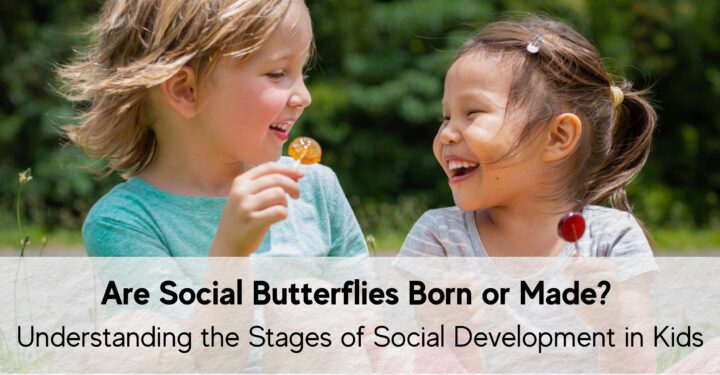As children grow and develop, they go through various stages of social development. These stages involve the acquisition and honing of essential social skills that enable them to interact effectively with others and navigate social situations with confidence. Understanding these stages can help parents, educators, and caregivers support children in their social growth and development

The first stage of social development begins during infancy, where babies start to develop a basic awareness of others around them. Through observation, infants learn to recognize familiar faces and imitate the behaviors they observe. This stage sets the foundation for future social interactions and lays the groundwork for further development.
Toddler Years
During the toddler years, children enter the second stage of social development, marked by increased social interaction and the emergence of social-emotional skills. Toddlers start to engage in parallel play, where they play alongside other children but do not actively engage or interact with them. Moreover, they begin to understand and express emotions, developing empathy and learning how to react appropriately in social situations.
As children progress into early childhood, the third stage of social development unfolds. At this stage, they begin to participate in cooperative play, actively engaging with their peers and building friendships. They learn to collaborate, negotiate, and share, developing crucial social skills that lay the foundation for successful relationships and interactions throughout their lives.
Middle School
During middle childhood, the fourth stage of social development takes place, characterized by further refinement of social skills and the development of self-identity. Children become more aware of social norms and expectations, learning how to adjust their behaviors accordingly. They begin to understand the perspectives of others, enhancing their ability to empathize and communicate effectively.
Teenagers
The final stage of social development occurs during adolescence. This stage is marked by the formation of a more complex and sophisticated social identity. Teenagers seek to establish their place within various social groups and navigate the complexities of peer pressure and societal expectations. At this stage, they develop a deeper understanding of themselves and their role within society.
To support children in their social development, it is essential to provide them with opportunities for social interaction. Enrolling them in group activities, such as sports teams or clubs, allows them to develop teamwork and communication skills. Encouraging them to participate in community service or volunteer work fosters empathy and social awareness.
Modeling Positive Social Behaviors
Additionally, parents and caregivers can help children develop social skills by modeling positive behavior and providing guidance. Teaching them about appropriate social etiquette, manners, and the importance of respect for others lays a strong foundation for social growth. Providing a safe and supportive environment for children to express their emotions and navigate social challenges also plays a crucial role in their development.
The stages of social development in children are essential milestones that pave the way for successful social interactions and relationships in their lives. Understanding these stages and providing appropriate support and guidance can help children develop crucial social skills, increasing their confidence and enhancing their overall well-being. By fostering social development, we empower children to become socially competent individuals who can navigate the complexities of the world around them.


